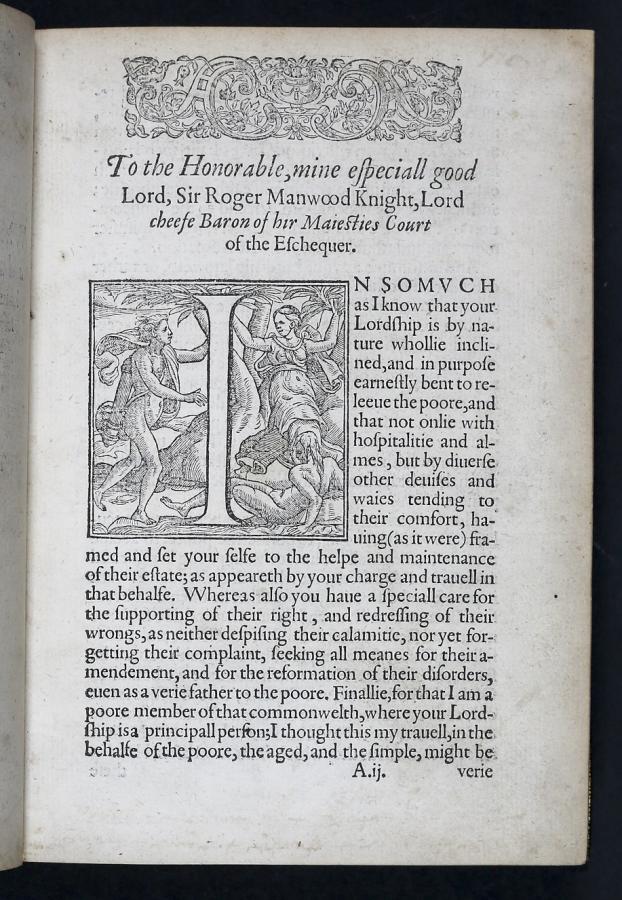
London: W. Brome, 1584
[H.P.L.] Scot (SR)
If Shakespeare drew on some sources for the main plot of one or more plays, others appeared only in subsidiary fashion. The discouerie of vvitchcraft was widely read in the late sixteenth and early seventeenth centuries. Its author, Reginald Scot (?1538-1599), set out to refute Jean Boden’s Démonologie (1580). He claimed that there were no witches in contemporary England, that those executed for witchcraft were innocent, and that no connection existed between a curse and an ensuing unpleasant event. Scot also attacked other forms of credulity and superstition, and was himself attacked by James VI of Scotland in the latter’s Daemonologie (1587). Shakespeare is thought to have taken some of his information for the witches in Macbeth from Scot (as well as from James I). In addition, Scot may provide inspiration for King Lear’s mock trial of his daughters, and Shakespeare might have used Scot’s discussion of beliefs about the ‘hob goblin’ Robin Goodfellow and his references to asinine transformations in A Midsummer Night’s Dream.